At the invitation of Ruben Vardanyan and IDeA Foundation representative of the legendary Rothschild family, famous French businessman and philanthropist, Baron Eric de Rothschild visited Armenia last week.
Since 1973 Chateau Lafite Rothschild wine estate has been under the direction of Eric de Rothschild. According to Bordeaux Wine Official Classification of 1855, Chateau Lafite-Rothschild is designated as Premier Grand Cru Classe, i.e. it belongs to the highest level in the classification.
Along with Chateau Mouton-Rothschild, Chateau Margaux, Chateau Latour and Chateau Haut-Brion, Chateau Lafite Rothschild is in the top 5 of First Growth (Premier Cru) wines from the Bordeaux region of France.
In 2010, Baron Eric de Rothschild received “Lifetime Achievement Award” of Wine Enthusiast U.S. Magazine.
Eric de Rothschild is also the President of Memorial de la Shoah in Paris.
After paying a visit to the Armenian Genocide Museum-Institute and Memorial in Yerevan, the Baron agreed to answer some of the questions of Mediamax.
- Сould you please describe your feelings after you visited the Armenian Genocide Museum and Memorial?
- When you listen about these atrocities, you find so many similarities between the fate of Armenians and the fate of Jews and it’s terrible. There is also a similarity in the desire to annihilate a whole population for ideological reasons. Armenians were perceived as a threat to the Ottoman Empire.
What terrifies me is that this happened in 1915, then this happened in Europe during World War II, then it happened in Africa, etc. It’s terrifying to see how humans accept the idea of annihilating a whole race without any sentiment of culpability.
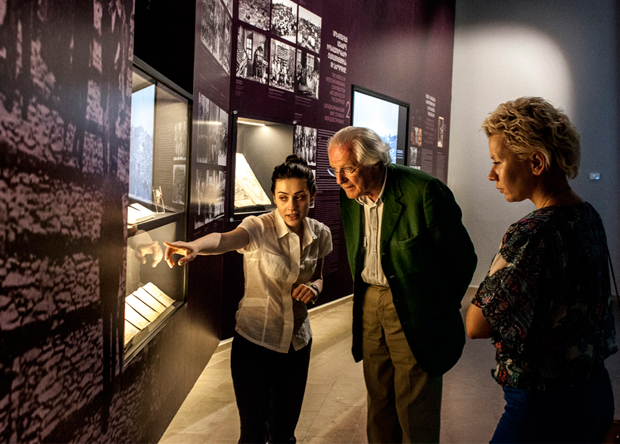 Eric de Rotschild at Armenian Genocide Museum
Eric de Rotschild at Armenian Genocide MuseumPhoto: Hayk Melkonyan
In Paris, the main task we have set ourselves [at the Shoah Memorial-Mediamax ] is the task of education. More than half of the time and more than half of the money are used for the education of the young population, as well as on the education of teachers that teach how to teach about these times. To teach well about it, you mustn’t dwell on just one of the genocides; you should actually dwell on the Armenian, Jewish, and also on the Tutsi genocides. Then it really makes people realize the continuity of the political approach to it.
The elites of the countries should also be ready to accept and see the responsibility of people who are perpetrating it. Today you look at the massacres of the Kurds and the Yazidis and cast a glance at the reaction of the world. The reaction of the world is extremely muted. The Muslim world isn’t reacting, as to the Christian world; the way they react can be described as “replaying the silence”, which to a certain extent allowed these massacres. This is what I find the most distressing of the whole situation today.
- You have seen a piece of “old” Armenia in the face of Tatev Monastery and have seen a piece of “new” Armenia in the face of UWC Dilijan College. What impressions did you get?
- Today, there are probably 12-13 million Jews of which six million are in Israel and six million are tied in a very strong Diaspora. Then you look at Armenia which has about 3 million Armenians in Armenia and about six million outside of it. These are two nations that have actually gone through the same horror but have survived and are blooming.
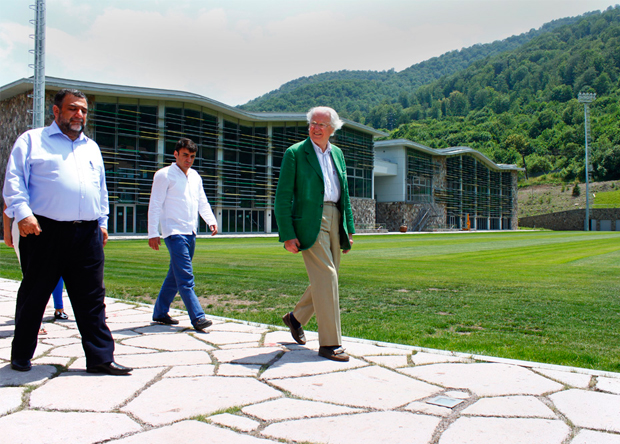 Eric de Rotschild and Ruben Vardanyan at UWC Dilijan College
Eric de Rotschild and Ruben Vardanyan at UWC Dilijan CollegePhoto: Hayk Melkonyan
In Armenia I saw people that want to pull themselves up by their bootstraps, with their plans and new schools.
There is something very moving in the similarity of the two nations’ human traditions, traditions of work, traditions of education.
- I know that you have tried some wines in Armenia. Do you think that Armenian wines may have some success in the world?
- I am sure that they have a future. You have Diaspora, and it is very important - six million people outside of the country will be the supporters of these wines.
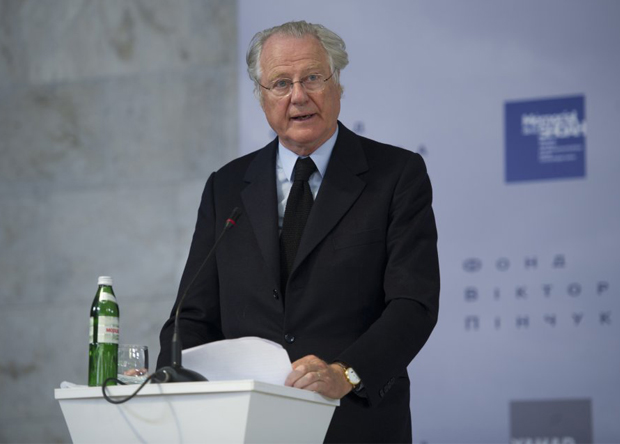 Eric de Rotschild
Eric de Rotschild Photo: Pinchuk Foundation
In general, the quality of wines throughout the world has considerably gone up in the last 20-30 years. The same refers to Armenian wines. We tried some wines, which were very good, and we tried some wines, which, I would say, were very interesting. Also, there were wines, which would probably make great progress in case of working on them, particularly, on the cépage (grape variety). I think there is great future for Armenian wines.
Ara Tadevosyan talked to Baron Eric de Rothschild















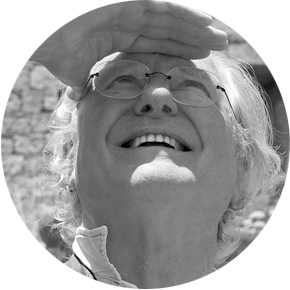

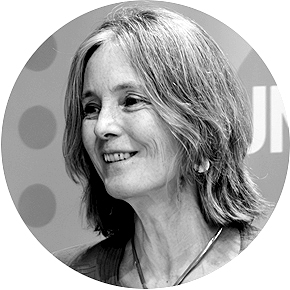

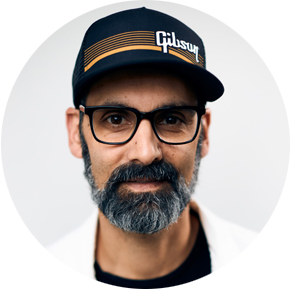






Comments
Dear visitors, You can place your opinion on the material using your Facebook account. Please, be polite and follow our simple rules: you are not allowed to make off - topic comments, place advertisements, use abusive and filthy language. The editorial staff reserves the right to moderate and delete comments in case of breach of the rules.